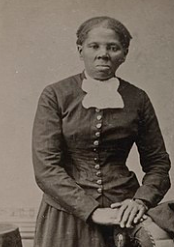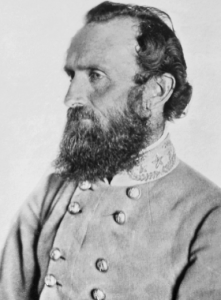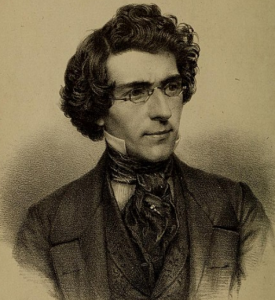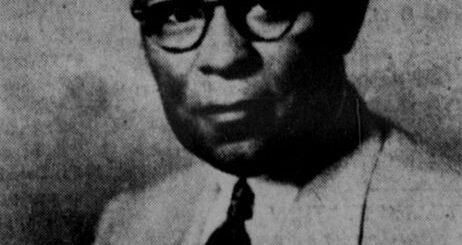10 Most Famous Americans of the Civil War
Abraham Lincoln. Jefferson Davis. Harriet Tubman. Ulysses S. Grant. Who is the most famous person of the American Civil War Era?
In the four-year war, Union Army predominantly in the north of country locked horns with the Confederate States predominantly in the south over the spread of slavery in the country, as well as states’ rights.
World History Edu explores the lives and major accomplishments of 10 Americans that were influential during the American Civil War.
Abraham Lincoln (1809 – 1865)

Born on February 12, 1809, in a small log cabin in Hardin County, Kentucky, Abraham Lincoln rose from a modest family background, trained himself to become a renowned lawyer based in Illinois, got elected to the U.S. Senate on the ticket of the Republican Party, and then went on to become the 16th President of the United States and leader of the Union forces that fought bravely to keep our nation together.
Aided by astute military commanders like William T. Sherman, Admiral David Farragut, and Ulysses S. Grant, Lincoln was able to secure victory over the Confederacy. Although his life was cut short about a month into his second term in the Oval Office, following an assassination by John Wilkes Booth on April 15, 1865, President Lincoln accomplished feats such as issuing the Emancipation Proclamation on September 22, 1862, and outlawing slavery (through the 13th Amendment to the United States Constitution, which was passed on December 6, 1865).
Read More: 9 Great Achievements of Abraham Lincoln
Robert E. Lee (1807–1870)

Robert E. Lee was born in 1807 to Henry Lee III, also known as Henry “Light Horse Harry” Lee III, a distinguished cavalry officer of the American Revolutionary War
Robert E. Lee was a distinguished general of our country best known for being the Commander of the Virginian Confederate Army from 1862 until its surrender to Union forces in 1865. Prior to serving as the commander of the confederate States Army, Robert E. Lee was a distinguished military officer and engineer of the United States Army for more than three decades. He served gallantly in the Mexican-American War (1846-1848), along with many astute military minds like Ulysses S. Grant. His unshakable loyalty to his state of Virginia was the reason why he chose to serve in the Confederate Army after the Virginia seceded from the Union.
His big break in the Civil War came after he took over command of the Confederate Army following General Joseph E. Johnston’s injuries during the Peninsula Campaign. Lee led the Confederate forces to some important battle victories, including the Second Battle of Bull run in August 1862, the Battle of Fredericksburg in December 1862, and the Battle of Chancellorsville from April to May 1863. However, his somewhat overly audacious and extremely risky attacks resulted in high casualties stacking up on not just his side but also the side of the Union forces. After engaging in a very protracted confrontation with Union forces during the Siege of Petersburg, Lee’s army was obliterated during the Capture of Richmond. General Lee then surrendered to Grant on the morning of April 9, 1865 at Appomattox Court House.
Following the surrender Lee went on to serve as the president of Washington College in Lexington Virginia. He spent the remainder of his life supporting efforts to bridge the divide between Southerners and Northerners. He also supported to complete extinction of slavery in America.
Did you know: Robert E. Lee’s wife Mary Anna Custis Lee was the adopted great-granddaughter of the George Washington, Founding Father and 1st President of the United States?
Ulysses S. Grant (1822–1885)

Rising to the position of Commander of the Union forces, Ulysses S. Grant, a United States Military Academy (West Point) graduate, was undoubtedly one of the greatest military commanders in our nation’s history.
General Grant courageously led the Union Army to victory over the Confederate Army in the four-year Civil War. Grant was able to bring his experiences from the two-year Mexican-American War (1846-1848) to bear in the Civil War, winning many crucial battles in the Western Theater.
Between December 1862 and July 1863, General Grant, with the aid of Major General William T. Sherman, famously led the Union forces during the Vicksburg campaign in Mississippi to gain control of the Mississippi River. That campaign proved vital in denying the Confederacy access to supply lines from Texas and Arkansas. Furthermore, Grant’s efforts in the Overland Campaign, which by the way accrued enormous casualties on both sides, ultimately culminated in Confederate Army General Robert E. Lee’s surrender at Appomattox Court House, Virginia, on April 9, 1865.
Signing of surrender documents, which was done in the parlor of a house owned by Wilmer McLean, a Virginia grocer, effectively brought an end to the Civil War. Grant stayed in as the the General of the Army until March 4, 1869, when he was sworn in as 18th President of the United States.
Read More: Ulysses S. Grant’s 8 Most Significant Presidential Accomplishments
Harriet Tubman (1822–1913)

Nicknamed “Moses” for her heroic efforts in leading slaves to freedom, Harriet Tubman was as active during the American Civil War as she was during her abolitionist and civil rights career. Born into slavery in Dorchester County, Maryland, Tubman endured unimaginable conditions for 27 years under numerous owners. However, she later found the courage and made her way to freedom. She then committed herself to helping runaway slaves make their way out of the shackles of slavery to safe places in the North and in Canada.
When the Civil War broke out in 1861, Harriet Tubman devoted herself to the cause of the Union forces, first serving as a cook, then a nurse, and later an agent. In that latter role of hers, she helped recruit African-Americans to the Union cause. In one of her heroic displays, she helped rescue hundreds of enslaved people during the Raid at Combahee Ferry.
After the Civil War, she continued her civil rights and women’s rights campaign for the remainder of her life. She thus established herself one of the most famous symbols of the abolitionist, civil rights and women’s right movements.
William T. Sherman (1820–1891)

Coming in at number 8 on our list of most famous Americans of the Civil War is William Tecumseh Sherman, a renowned general in the Union Army. An astute military strategist, General Sherman played an influential role in securing a number of battle wins for the Union.
Born in Lancaster, Ohio, Sherman received his military training at the US Military Academy at West Point. After being dealt a heavy blow in his business venture, he took a job as the superintendent of the Louisiana State Seminary of Learning & Military Academy (now Louisiana State University). Upon recieivng news of Louisiana’s secession from the Union, Sherman resigned his job and rejoined the U.S. Army, fighting on the side of the Union Army against the Confederate forces. Although, he was sometimes criticized for his somewhat cruel tactics – i.e. his scorched earth policies against the Confederate States – there was no denying the fact that Sherman was a very capable military general.
Nicknamed “Cump”, General Sherman is best remembered for building a very strong military partnership with General U.S. Grant during battles such as Fort Henry and Donelson, both in February 1862. Historians often make mention of the fact that Sherman’s win in the Atlanta Campaign in May 1864 played a crucial role in President Lincoln’s re-election at the polls in 1864.
Sherman’s march through Georgia and the Carolinas, although somewhat excessively harsh, helped secure ultimate victory for the Union forces over the Confederate Army. That march of his in 1864 caused large-scale obliteration of many cotton plantations and other key infrastructures in the South. Sherman would then receive the surrender of the Confederate armies in the Carolinas, Georgia, and Florida in April 1865
Following the end of the war, worked very hard to keep the peace between the North and the South. He would go on to have a lengthy service as the Commanding General of the U.S. Army from 1869 to 1883.
Did you know: Sherman’s memoirs about the Civil War, which was published in 1875, went on to be one of the most famous first-hand accounts of the American Civil War?
Frederick Douglass (1818 – 1895)

Frederick Douglass was an African-American social reformer, orator, writer, and most importantly abolitionists and civil rights campaigner. Similar to abolitionist and women’s rights campaigner Harriet Tubman, Frederick Douglas was born into slavery in Maryland. He too would gather enough courage and escape the clutches of slavery. From then onward, Frederick Douglass made it his life goal to bring an end to slavery in America.

Frederick Douglass holds the record of being the first African-American to serve as the running mate of a political party in the United States. He was the vice presidential nominee of Victoria Woodhull of the Equal Rights Party.
Therefore, it came as no surprise that he joined forces with the Union Army to realize this goal of his. Throughout the Civil War, Douglass was supportive of the government in Washington, D.C. in their fight against the Confederate State. He was a brilliant orator and writer as well, playing a vital role in inspiring black Americans to join the Union Army. So good were his writing and oratory prowess that many people were shocked to hear that he was once a slave. Frederick Douglass’s life achievements and contributions during the Civil War have been massive inspiration to the African American communities for many years.
Did you know: Frederick Douglass is the author of many works, including his three autobiographies: Narrative of the Life of Frederick Douglass, an American Slave (1845), My Bondage and My Freedom (1855), and Life and Times of Frederick Douglass (1881)?
Jefferson Davis (1808 – 1889)

Jefferson Davis was the President of the Confederate States from 1861 to 1865
Before the American Civil War erupted in 1861, Kentucky-born politician Jefferson Davis served as an elected the House of Representative and then senator in the U.S. Senate from Mississippi. And from 1853 to 1857, he was the U.S. Secretary of War during the presidency of Franklin Pierce.
Like many of the generals and political leaders during the Civil War, Jefferson Davis was a graduate of the United State Military Academy (also known as West Point). Davis also served along with the likes of Ulysses S. Grant and Robert E. Lee in the Mexican-American War. Davis was drawn to cause of the Confederate States because he like many leading Southern politicians owned many enslaved people. Davis simply sought to protect the South’s way of life and institutionalized slavery in America.
A devoted Southern patriot, Davis was elected provisional Confederate President in February, 1861. Davis preference for military duties over civil duties meant that he deeply wanted to serve as the commander of the Confederate Armies during the Civil War. History remembers him as an ineffective leader of the Southern states as he was overly occupied with detail. He also on many occasions locked horns with Southern state governors and generals, including General Robert E. Lee. After General Lee’s surrender, Jefferson was arrested and placed in prison at For Monroe in Hampton, Virginia for about two years. Following his release two years later, he committed himself to repairing the frosty relationship between the North and the South, often times entreating Southerners to commit themselves in preserving the Union.
Did you know: Jefferson Davis’s first wife, Sarah Knox Taylor, was the daughter of Zachary Taylor, U.S. Army general and 12th President of the United States?
Andrew Johnson (1808 – 1875)

Andrew J. Johnson, a North Carolina-born politician, was a member of the U.S. House of Representatives from Tennessee, a military governor of Tennessee, vice president of the United States, and then president of the United States. Although a member of the Democratic Party, Johnson was a staunch supporter of the Union’s cause during the American Civil War. Johnson is famous for being the only politician from the Southern slave states who did not resign upon the secession of the South from the Union.
Johnson joined the Union’s struggle by working as the Military Governor of Tennessee from 1862 to 1865. Determined to reinforce the North’s reconciliatory tone to a defeated South, Johnson wholeheartedly accepted to be President Lincoln’s running mate in the 1864 presidential election. Less than two months into his term as vice president of the United States, Johnson would assume the presidency as Abraham Lincoln had been assassinated. And although his presidential legacy was slightly tarnished by his refusal to grant protection to former slaves in the South, Andrew Johnson is fondly remembered for his contributions in preserving the unity of our country.
Read More: 10 Most Significant Accomplishments of Andrew Johnson
Thomas “Stonewall” Jackson (1824–1863)

Born on January 21, 1824, in Clarksburg, Virginia, Thomas Jonathan Jackson earned his nickname “Stonewall” at the Battle of Manassas on July 21, 1861. The renowned military tactician and commander received the nickname from Confederate General Bernard Bee for his bravery at the early stages of the Civil War.
Stonewall Jackson distinguished himself gallantly during the Valley Campaign of 1862. A year prior to that, he and his troops bravely held an impenetrable line in the First Battle of Bull Run. Jackson also led his troops also performed brilliantly at the Maryland Campaign in September 1862, securing the strategic town of Harpers Ferry. He subsequently erected a strong defense of the Confederate forces at the Battle of Antietam on September 17, 1862.

A Confederate Army general describing Stonewall Jackson’s bravery during a Civil War battle
Although his life was cut short after he was wounded in a friendly fire at Chancelllorsville on May 2, 1863, Stonewall’s heroics and service in the Eastern Theater allowed him to etch his name in the annals of American history as one of the greatest military commanders. Unbeknownst to many people, Stonewall was a graduate of U.S. Military Academy at West Point. He also fought in the Mexican-American War (1846-1848). For about a decade prior to the start of Civil War, Stonewall Jackson was professor Natural and Experimental Philosophy at the Virginia Military Institute in Lexington, Virginia.
Stonewall Jackson came under friendly fire, incurring bullet wounds in the left arm and one through the right hand. He died on May 10, 1863. He was buried on May 15, 1863 in the Lexington Presbyterian Cemetery.
Did you know: On May 10, 1863, Stonewall Jackson succumbed to pneumonia following an amputation of his left arm?
Mathew Brady (1822 – 1896)

Famous Americans of the Civil War – Mathew Brady
Occupying the final spot on our list of famous Americans of the Civil War is American photographer and Civil War photojournalist Mathew Benjamin Brady. Born in Warren County, New York, in c. 1822, Brady is most famous for putting his life on the line to cover the true horrors of the American Civil War. He took many photos of bloody battlefields, wanton destruction and chaos caused by the four-year war. By so doing, he was able to convey to the whole nation how the war was ripping the country apart. Brady and his assistants took thousands of photos during the war, including public figures, military generals and politicians in the South and North.
Did you know: American photographer Mathew Brady took photos of U.S. presidents Andrew Jackson, John Quincy Adams, and Abraham Lincoln?



























